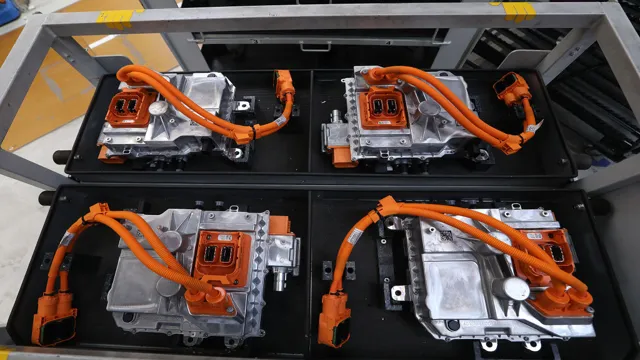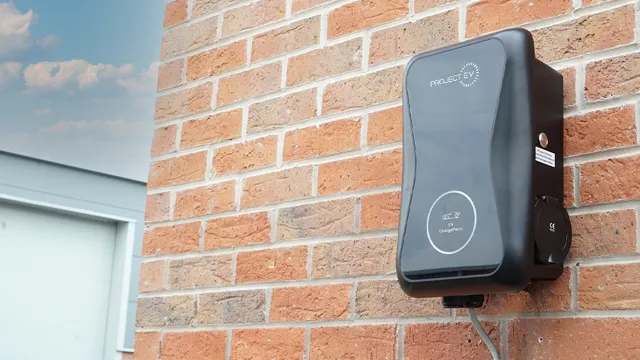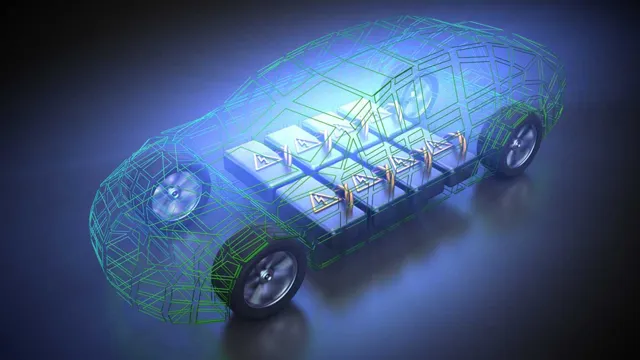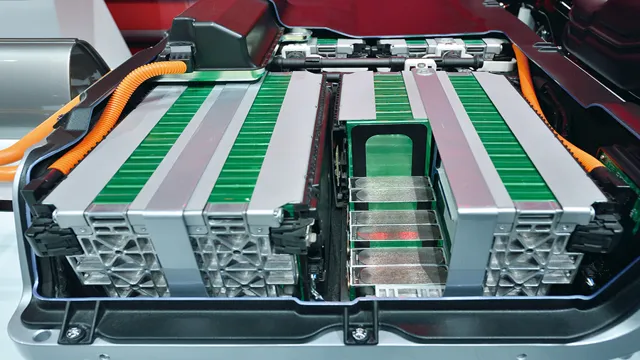Unleashing the Flexibility: Charging Your Electric Car Anywhere with Portable Batteries
If you’ve recently purchased an electric car, you might be wondering about your options for charging it while on the go. Portable battery chargers are becoming an increasingly popular way to power up electric vehicles, offering convenience and flexibility for drivers who don’t have access to a charging station. But is it really possible to charge an electric car from a portable battery? The short answer is yes, it is indeed possible – but as with most things, there are some caveats to keep in mind.
Firstly, the type of battery you’ll need will depend on the size of your car’s battery and how much charge you need. The most common portable battery chargers on the market tend to offer around 10-20% of the capacity of a full electric vehicle battery, which can be useful for topping up a partially charged car or for short trips. However, if you need to recharge your car from empty, you’ll likely need a much larger portable battery – and this can get expensive and heavy to carry around.
Additionally, charging your car from a portable battery can take longer than using a dedicated charging station, so you’ll need to plan ahead and be prepared to wait for your car to be ready to go. Despite these challenges, many electric car owners find that portable battery chargers offer a helpful solution for powering up their vehicles while on the move. With the right equipment and a bit of planning, you can enjoy the freedom and flexibility of driving an electric car without worrying about running out of power.
So why not give it a try and see how charging your electric car from a portable battery can work for you?
Compatibility
Yes, it is possible to charge an electric car from a portable battery, but it depends on the compatibility of the battery and the vehicle. Some electric cars can be charged using a Level 1 or Level 2 charging station that can be easily installed at home, but others may require a DC fast charging station that is only found at public charging stations. Portable batteries, on the other hand, may not be compatible with all electric cars due to differences in voltage, current, and connectors.
It is important to check the specifications and recommendations of both the car and the battery before attempting to charge one with the other. Some companies have developed portable batteries specifically for electric cars, but they can be expensive and may only work with certain models. In general, using a portable battery as a backup or emergency charging option should only be considered if it is compatible and safe to do so.
Check Your Car Manual’s Requirements
When it comes to maintaining your car, it’s important to know the compatibility requirements for any new parts or accessories you want to add. One of the best resources for this information is your car manual. Your manual will provide detailed specifications for the make and model of your vehicle, as well as information on what parts and accessories are recommended by the manufacturer.
It’s important to follow these guidelines to ensure that all components work together correctly and safely. Ignoring compatibility requirements can lead to problems down the road, including reduced performance or even damage to your vehicle. So before making any changes to your car, be sure to consult your manual and follow the recommendations provided.
By doing so, you’ll be able to keep your vehicle running smoothly and safely for years to come.
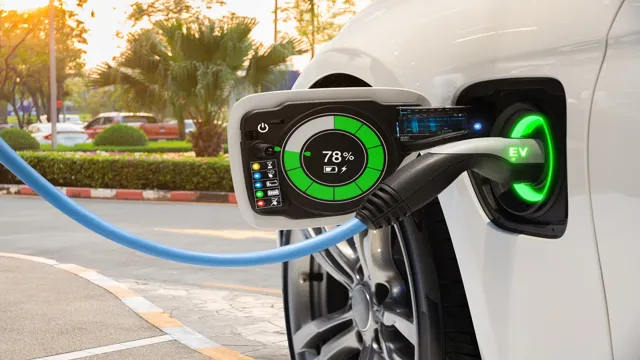
Types of Portable Batteries
When it comes to portable batteries, compatibility is a crucial factor to consider. Different devices require different types of batteries, and not all portable batteries are compatible with every device. For example, a battery pack that works well with smartphones may not work with laptops or tablets.
It is essential to check the specifications and requirements of the device you need to power before purchasing a portable battery. Some batteries come with a range of adapters and plugs to ensure compatibility with a variety of devices, while others may have specific connectors designed for a particular device or brand. Always check the compatibility of the battery pack before making a purchase and ensure it can cater to your needs.
Choosing the right battery will ensure that your device is powered up and ready to go, at home or on the move.
Charging Time
Can you charge an electric car from a portable battery? Yes, it is possible to charge an electric car using a portable battery. However, the charging time and compatibility of the battery with the car’s charging system are critical considerations. The battery capacity and the car’s battery need to match so that the battery can provide enough energy to charge the car.
Not all portable batteries are suitable for every model of electric car, so you must also check the compatibility before charging your car. Additionally, charging an electric car from a portable battery could take several hours, depending on the battery’s capacity and the car’s charging speed. It is a convenient option for those who need to charge their electric cars on the go, but it is not a quick solution for recharging.
Ultimately, charging with a portable battery may be a useful backup or emergency charging solution for your electric vehicle, but it should not be underestimated as the only means of charging your EV regularly.
Factors Affecting Charging Time
Charging time is an essential aspect of owning a device, especially when we’re always on the move. Factors such as the battery capacity, charging rate, and the type of charger can significantly affect charging time. A high-capacity battery takes longer to charge than a low-capacity one, and chargers with high output currents charge devices faster than those with lower currents.
Charging speed is also determined by the device’s charging circuitry, which regulates the amount of current flowing to the battery. In addition, using a compatible charger that matches the device’s voltage requirements can reduce charging time. Charging time can, however, vary depending on environmental factors such as ambient temperature, which affects the battery’s internal resistance, thus influencing battery charging speed.
In summary, understanding the various factors that affect charging time can help you optimize your device’s battery life.
Example of Charging Time for Popular Electric Cars
Electric car owners often want to know how long it takes to charge their vehicles, especially when planning a long road trip. The charging time varies based on the electric car’s battery capacity and the type of charger used. For example, a Tesla Model S with a 100 kWh battery can take up to 12 hours to charge using a level two charger, while a Nissan Leaf with a 40 kWh battery can be charged fully within 8 hours with the same charger.
However, using a DC fast charger can significantly reduce charging times for both cars. A Tesla can be charged up to 80% in just 40 minutes, while a Nissan Leaf can reach an 80% charge in 30 minutes. Additionally, newer electric car models like the Ford Mustang Mach-E and the Porsche Taycan can reach an 80% charge in just 45 minutes using a DC fast charger.
It’s important to note that while charging times are improving, electric car owners still need to plan their trips carefully and consider charging options along the way.
Safety
When it comes to charging your electric car, there’s a lot of flexibility in terms of where and how you can do it. One question that comes up a lot is whether you can charge your car from a portable battery. The short answer is yes, you can.
In fact, there are several portable battery options on the market that allow you to do just that. However, it’s important to note that charging from a portable battery does come with some safety concerns. For one, you need to ensure that the battery is fully charged and capable of supplying enough energy to your car.
Additionally, you need to make sure that the battery is rated for the voltage and amperage required by your car. Finally, you need to be mindful of the potential for overheating or other safety hazards during the charging process. Overall, while charging from a portable battery can be a convenient option, it’s important to approach it with caution and take the necessary safety precautions to prevent any accidents or damage to your vehicle.
Avoid Using Low-Quality Batteries
When it comes to using batteries, safety should always be a top priority. One of the best ways to ensure your safety is to avoid using low-quality batteries. These batteries are often those that are poorly made and do not meet the standards set by regulatory bodies.
Not only do they have the potential to be less effective in powering your devices, but they also pose a significant risk of overheating, leaking, or even exploding. Investing in high-quality batteries may cost more initially, but it will definitely pay off in the long run. When you use quality batteries, you can be sure that they are less likely to malfunction and cause any harm to you or your device.
It’s better to be safe than sorry, so never skimp on battery quality if you value your safety.
Overheating and Overcharging Risks
When it comes to our electronic devices, we all know that overcharging and overheating can be major issues. Whether it’s our phones, laptops or other gadgets, these risks can be a cause for concern. Overheating can occur when any electronic device is overused or left charging for too long, and if left unchecked, it can permanently damage the device or even cause a fire.
Overcharging, on the other hand, can cause a battery to swell or even explode, leading to irreparable damage to both the device and the user. When it comes to our safety, it’s important to be aware of these risks and take precautions to avoid potential danger. So, don’t leave your devices unattended while charging and always use the proper charging cables and accessories to avoid potential overcharging.
It’s always better to be safe than sorry!
Conclusion
In conclusion, it is technically possible to charge an electric car from a portable battery, but it would require some serious dedication and innovation. You’d need a battery powerful enough to handle the high voltage, a way to regulate the electricity flow, and the patience of a saint while waiting for the battery to recharge. It’s like trying to power a cruise ship with a single AA battery – it’s just not practical.
So while the idea may seem appealing for those who like to go off the grid, it’s best to stick with traditional charging methods and leave the portable batteries for your phone and other personal devices.”
FAQs
What is a portable battery for an electric car?
A portable battery for an electric car is a device that can be used to charge the battery of an electric vehicle when there is no access to a charging station.
How long does it take to charge an electric car from a portable battery?
The charging time for an electric car from a portable battery depends on the capacity of the battery and the charging speed of the electric car.
How do I know if my portable battery is compatible with my electric car?
The compatibility of a portable battery with an electric car can typically be determined by checking the voltage and amperage ratings of both devices.
Is it safe to charge my electric car from a portable battery?
Charging an electric car from a portable battery is safe as long as the battery is properly maintained and the charging procedure is done according to the manufacturer’s instructions. However, it’s important to note that charging an electric car using a temporary solution like a portable battery should not be a long-term solution.

